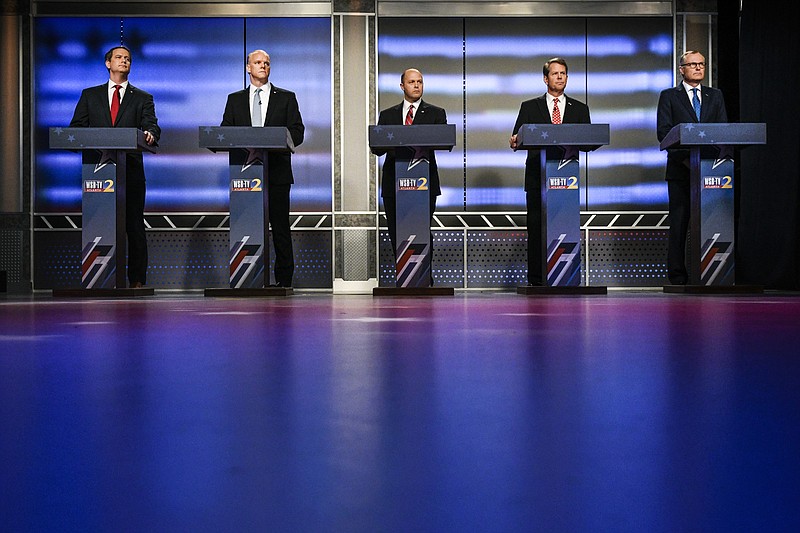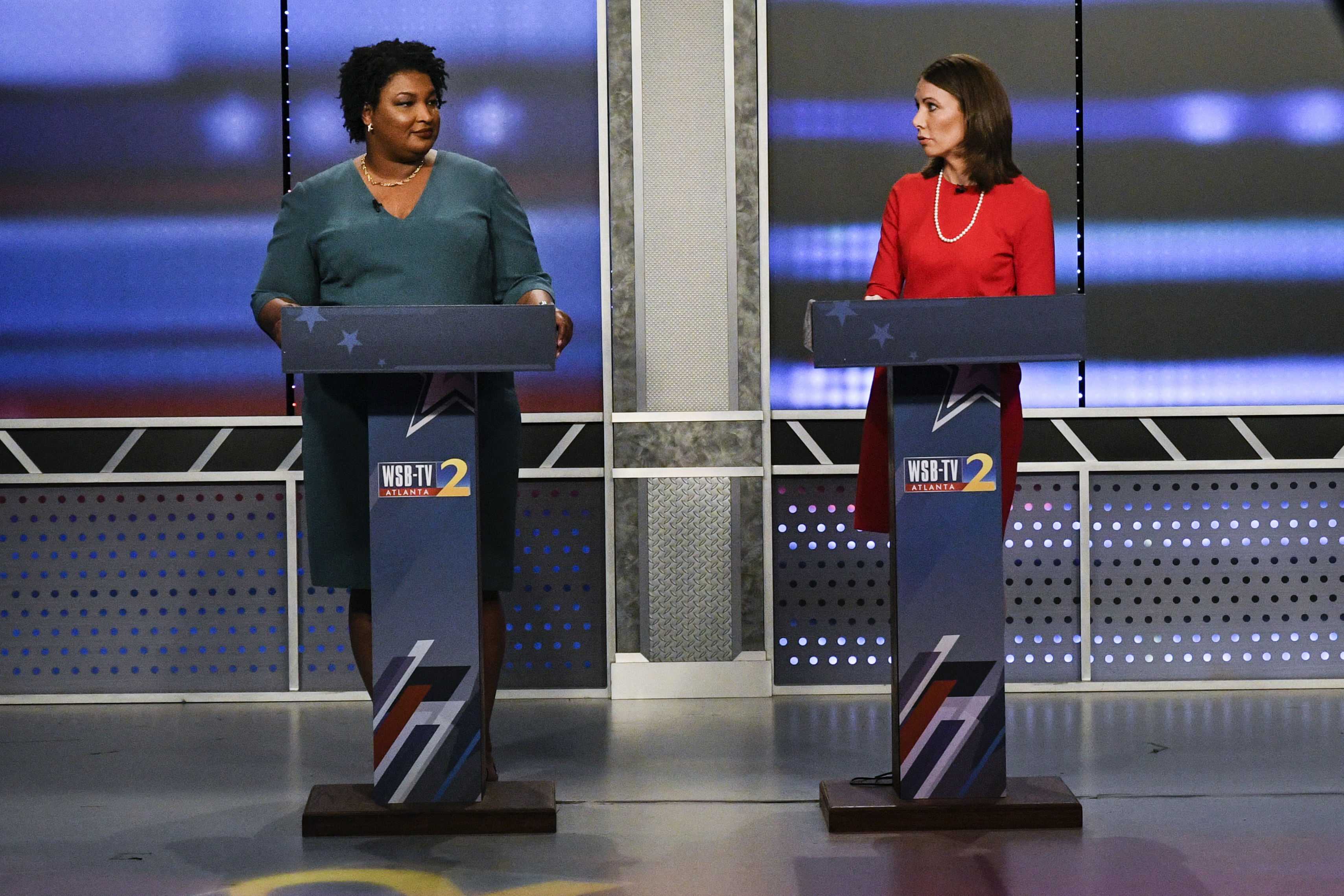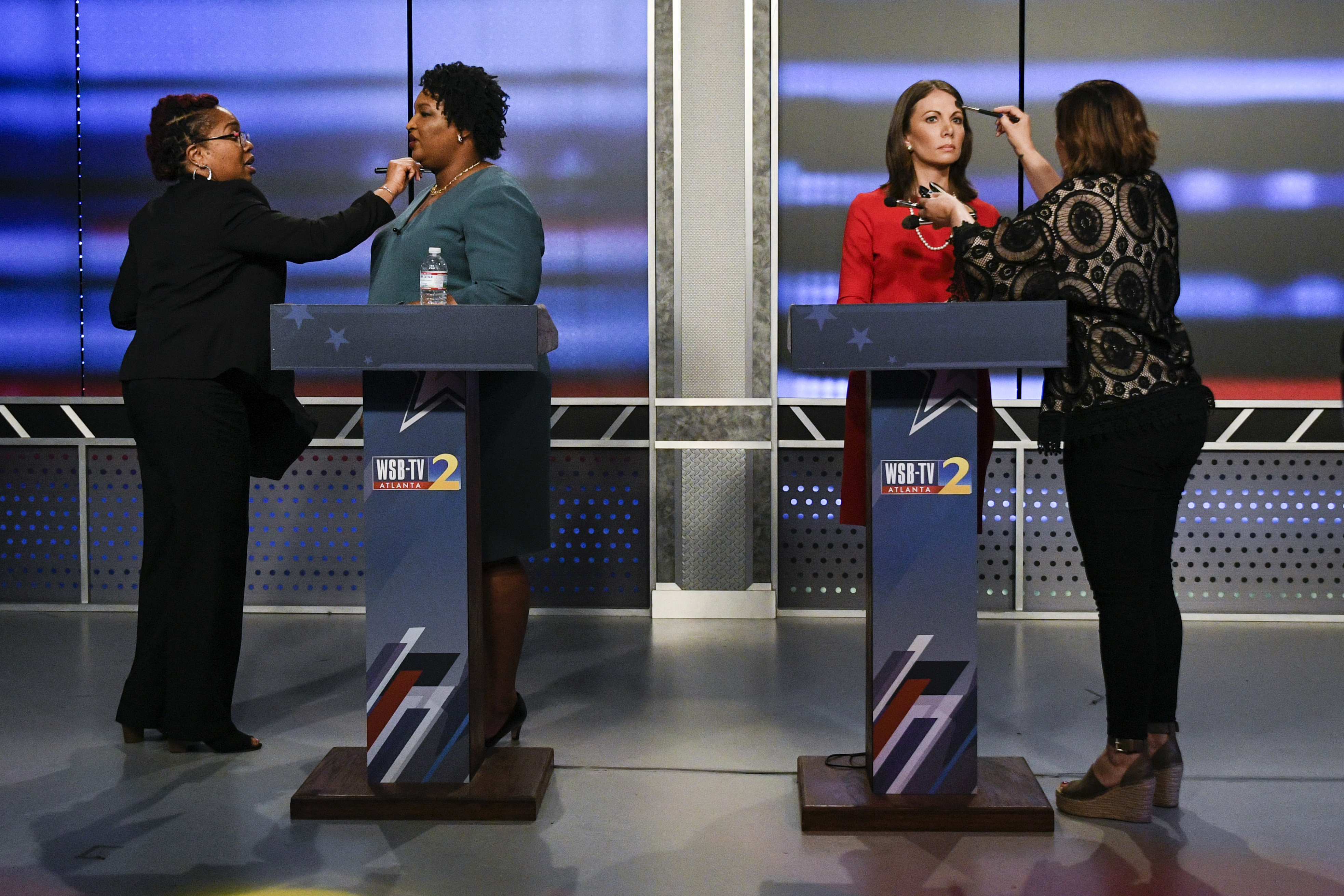ATLANTA - Georgia's two Democratic gubernatorial hopefuls agree. And all five candidates on the Republican side are together. But on the issue of gun control, the gap between the two major parties' candidates was stark, with seemingly little overlap or room for compromise.
The candidates met Sunday in separate party- specific debates at WSB-TV studios in Atlanta. Those were the final debates before voters cast ballots in Tuesday's primaries.
Each candidate was pressed about public support for stricter gun control following Friday's deadly school shooting in Santa Fe, Texas.
Both Democratic candidates, former state House Minority Leader Stacey Abrams and former state Rep. Stacey Evans, advocated for specific restrictions. They agreed on the need to expand background checks, ban assault weapons and remove guns from homes where domestic violence occurs.
The Republican candidates, including Lt. Gov. Casey Cagle, Secretary of State Brian Kemp, former state Sen. Hunter Hill, state Sen. Michael Williams and businessman Clay Tippins, all agreed on a single point: No more gun control. They used the chance to position themselves as the biggest supporter of the Second Amendment in the field.
When asked about the topic, the GOP candidates talked about school safety plans, problems with the mental health system and arming teachers.
Hill said "gun control simply doesn't work."
As with previous debates, strong support for gun rights and tough talk on immigration dominated discussion on the Republican side. The candidates largely agree on those issues in terms of policy but have argued over who is better suited to carry out a conservative agenda.
If no candidate receives more than 50 percent of the vote on Election Day - a distinct possibility in the crowded GOP field - the two with the most votes will advance to a July 24 runoff.
Cagle has maintained a steady lead in public polling. But there is a tight battle playing out for the No. 2 spot and a position in a possible runoff.
A number of candidates specifically appealed to voters to help them reach a runoff with Cagle in their closing remarks.
In the Democratic debate, Abrams went after Evans for past statements on making work requirements a condition for Medicaid recipients. Evans said that she did not support such requirements and decried stereotypes about recipients not working.
Evans continued to challenge Abrams over her record on HOPE scholarships, accusing her of overseeing cuts to the program. Abrams defended her record, saying that she worked alongside Republicans to save HOPE under in the face of financial pressure.
Either candidate would be the first female Democratic gubernatorial nominee in Georgia and, if elected in November, the first female governor of the state.
Advanced in-person voting began April 30.


